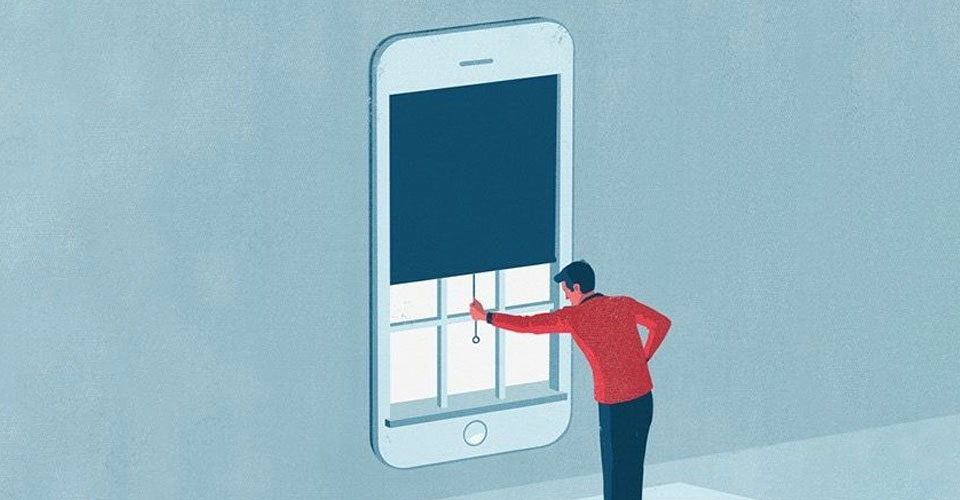ADHD and Psychosis treatments are connected with each other. Recent studies have raised concerns about the potential risks of high doses of ADHD medications, particularly stimulants like amphetamines and methylphenidate, which are commonly prescribed to treat attention-deficit/hyperactivity disorder (ADHD). While these drugs are generally effective in managing symptoms of ADHD, research suggests that taking them in high doses may increase the risk of developing psychosis—a severe mental health condition characterized by symptoms such as delusions, hallucinations, and disorganized thinking.
This connection highlights the importance of careful dosing and monitoring when using stimulant medications, especially for individuals with underlying mental health conditions. Understanding this risk is crucial for healthcare providers and patients alike, ensuring safe and effective treatment strategies for ADHD.
Features of Psychotic disorder
Psychosis is a mental health condition where a person loses touch with reality, often experiencing symptoms that affect their perception, thinking, and behavior. Key features of psychosis include:
- Hallucinations: These involve sensing things that aren’t there, such as hearing voices, seeing visual images, or feeling physical sensations that others do not experience.
- Delusions: Strongly held false beliefs that persist despite evidence to the contrary. Common types of delusions include paranoid delusions (believing others are out to harm you) or grandiose delusions (believing one has special powers or importance).
- Disorganized Thinking and Speech: Thoughts may feel jumbled or disconnected, making it hard to organize words or ideas. This can lead to speech that’s difficult for others to follow.
- Behavioral Changes: Unusual, erratic, or inappropriate behavior may arise, often due to distorted perceptions of reality.
- Reduced Insight: People with psychosis often have difficulty recognizing that their experiences are not real or logical, which can make accepting help challenging.
Psychosis can be a symptom of various mental health disorders, including schizophrenia, bipolar disorder, and severe depression, but it can also be triggered by substance use, extreme stress, or certain medical conditions. Treatment typically includes antipsychotic medications and therapy, which help manage symptoms and improve quality of life.
ADHD psychotic disorder
“ADHD psychotic disorder” is not an official diagnosis but rather a description of a complex clinical presentation where a person with ADHD (Attention-Deficit/Hyperactivity Disorder) also experiences psychotic symptoms, such as hallucinations or delusions. ADHD and psychosis are typically distinct conditions, but certain factors can lead to the coexistence of symptoms from both disorders, resulting in a challenging and unique clinical picture.
ADHD with psychotic features, also known as ADHD with psychotic disorder, occurs when a person diagnosed with Attention-Deficit/Hyperactivity Disorder (ADHD) also experiences symptoms of psychosis, such as hallucinations or delusions. While ADHD itself is typically characterized by inattention, hyperactivity, and impulsivity, the addition of psychotic symptoms represents a distinct and complex clinical picture.
This combination can sometimes occur due to severe ADHD symptoms that impact perception or due to a co-occurring mental health condition, like schizophrenia or schizoaffective disorder. Additionally, some medications for ADHD, particularly stimulants, may trigger psychotic symptoms in rare cases, though this is uncommon. Treating ADHD with psychotic features involves a careful, tailored approach using both behavioral therapies and medication, often including non-stimulant ADHD treatments and antipsychotic medications to help manage psychotic symptoms.
Potential Reasons for Co-Occurrence of ADHD and Psychotic Symptoms
- Co-occurring Mental Health Conditions: Some individuals with ADHD may also have another condition that involves psychosis, such as schizophrenia or schizoaffective disorder. In these cases, the psychotic symptoms are usually related to the co-occurring disorder rather than ADHD itself.
- Medication-Induced Psychosis: Stimulant medications, commonly prescribed for ADHD (e.g., methylphenidate or amphetamines), can, in rare cases, trigger psychotic symptoms, especially at high doses or in people with a vulnerability to psychosis. Symptoms may include hallucinations or delusional thinking, and these generally resolve when the medication is discontinued.
- Intense Emotional Dysregulation: Some individuals with severe ADHD experience extreme impulsivity, emotional dysregulation, and high stress, which can sometimes lead to short-lived, psychosis-like experiences. However, these experiences are often transient and do not constitute full-blown psychosis.
- Stress and Sleep Deprivation: Chronic stress and lack of sleep, both common in individuals with ADHD, can, in rare cases, contribute to temporary psychotic symptoms. Improving sleep and stress levels can help manage these episodes.
Treating ADHD with psychotic symptoms requires a cautious and tailored approach:
- Medication Management: Non-stimulant medications like atomoxetine or guanfacine are often preferred to reduce the risk of stimulant-induced psychosis. Antipsychotic medications are typically prescribed to manage the psychotic symptoms, and dosages are carefully monitored.
- Therapy: Cognitive Behavioral Therapy (CBT) can be used to manage both ADHD and psychotic symptoms. Family therapy and social skills training can also help improve communication and support.
- Lifestyle Modifications: Reducing stress, prioritizing sleep, and avoiding substances like alcohol and drugs can help reduce symptoms and prevent episodes.
The combination of ADHD and psychosis is complex, and treatment often requires a multi-disciplinary approach. With careful management, many people are able to find stability and relief from symptoms.
Symptoms of Psychosis
The symptoms of psychosis generally involve a break from reality and can vary, but they typically include:
- Hallucinations: Sensing things that aren’t real, such as hearing voices, seeing things, or feeling sensations that others don’t experience.
- Delusions: Strongly held false beliefs, even in the face of contrary evidence. Common types include paranoid delusions (feeling persecuted or under threat), grandiose delusions (believing one has special powers or importance), or bizarre delusions (unusual, implausible beliefs).
- Disorganized Thinking and Speech: Trouble organizing thoughts, resulting in scattered or disconnected speech that may be difficult for others to follow. This is sometimes called “thought disorder.”
- Abnormal or Erratic Behavior: Behavior that is uncharacteristic or inappropriate for the situation, often due to impaired perception of reality.
- Reduced Insight: Difficulty recognizing that these experiences or beliefs are not real or logical, which can make it challenging for the person to accept help.
- Mood and Cognitive Changes: Some may experience sudden shifts in mood (depression, mania, or irritability) or cognitive impairments like memory loss, trouble focusing, or poor decision-making.
Psychosis can emerge as a symptom of mental health disorders like schizophrenia, bipolar disorder, and severe depression, but it can also be triggered by substance use, trauma, or medical conditions. Treatment usually involves antipsychotic medications and supportive therapies to help manage symptoms and improve functioning.
Does ADHD cause psychosis
ADHD does not typically cause psychosis, but there are situations where people with ADHD may experience psychotic symptoms. These situations include:
- Co-occurring Conditions: Some individuals with ADHD may also have a separate mental health condition, such as schizophrenia or bipolar disorder, which can involve psychosis. In these cases, psychotic symptoms are related to the co-occurring condition rather than ADHD itself.
- Medication-Induced Psychosis: In rare cases, stimulant medications commonly used to treat ADHD, such as methylphenidate or amphetamines, can trigger psychotic symptoms, especially at high doses or in sensitive individuals. Symptoms typically subside when the medication is reduced or discontinued.
- Severe ADHD Symptoms: Although not common, severe impulsivity, emotional dysregulation, or stress related to ADHD may sometimes mimic or contribute to experiences that resemble psychotic symptoms, especially in individuals with intense hyperactivity or emotional instability. However, these experiences are typically not true psychosis.
- High Stress and Sleep Deprivation: Some individuals with ADHD may experience high levels of stress or sleep deprivation, which can, in rare instances, increase susceptibility to temporary psychotic-like symptoms, though these usually resolve with rest and stress reduction.
While ADHD itself does not cause psychosis, the presence of ADHD may sometimes complicate or worsen mental health challenges.
What are the treatments of psychosis
Treating psychosis generally involves a combination of medications, therapy, and support strategies tailored to help manage symptoms and improve overall functioning. Common treatments include:
- Antipsychotic Medications: These are the primary medications for treating psychosis, helping to reduce or eliminate symptoms like hallucinations and delusions. Common types include first-generation (typical) antipsychotics (e.g., haloperidol) and second-generation (atypical) antipsychotics (e.g., risperidone, olanzapine). The choice of medication depends on symptom type, side effects, and individual response.
- Psychotherapy:
- Cognitive Behavioral Therapy for Psychosis (CBTp): A type of therapy that helps individuals challenge and change unhelpful beliefs and thought patterns associated with psychosis.
- Family Therapy: Educates and involves family members in supporting the person with psychosis, improving communication and reducing stress within the family.
- Supportive Therapy: Provides a safe space to discuss feelings, challenges, and coping strategies, helping to build insight and resilience.
- Psychoeducation: Teaching the person and their family about psychosis, its symptoms, and treatment can improve understanding and empower them to recognize early warning signs, manage symptoms, and avoid relapse.
- Social and Vocational Support: Social skills training, supported employment, and rehabilitation programs can help people with psychosis reintegrate into the community, find work, and build social connections.
- Hospitalization (if needed): In severe cases, short-term hospitalization may be necessary for stabilization, especially if the person is a danger to themselves or others or is unable to care for themselves.
- Lifestyle and Self-Care:
- Stress Management: Reducing stress can help prevent relapses, as stress is a common trigger for psychotic episodes.
- Healthy Lifestyle Habits: Regular exercise, a balanced diet, adequate sleep, and avoiding substances like alcohol and drugs can help improve mental health and reduce symptom severity.
Treatment for psychosis is typically ongoing and often involves long-term support to maintain stability, prevent relapses, and improve quality of life.
ADHD and psychosis treatment
When treating ADHD and psychosis together, it’s important to address both conditions in a careful and balanced manner. Treatment typically includes a combination of medications, therapy, and support strategies to manage ADHD symptoms while also addressing the psychotic symptoms. Here’s how each condition is typically treated in this context:
1. Medication Management:
- For ADHD:
Stimulant medications (e.g., methylphenidate or amphetamines) are commonly used to treat ADHD, as they improve focus and reduce impulsivity. However, these medications can sometimes cause or exacerbate psychotic symptoms, especially in high doses or individuals with a predisposition to psychosis. In such cases, non-stimulant medications like atomoxetine or guanfacine may be considered as alternatives, as they have a lower risk of triggering psychosis. - For Psychosis:
Antipsychotic medications are used to treat the psychotic symptoms (such as hallucinations or delusions). Second-generation (atypical) antipsychotics, like risperidone, olanzapine, or aripiprazole, are typically preferred due to their lower risk of side effects compared to first-generation antipsychotics. Medication for psychosis is usually adjusted depending on the severity of symptoms and the individual’s response. - Careful Monitoring:
It’s crucial to carefully monitor the patient’s response to both ADHD and antipsychotic medications. Doctors will often adjust dosages to find a balance that treats both conditions effectively without triggering side effects.
2. Psychotherapy and Support:
- Cognitive Behavioral Therapy (CBT):
CBT can help individuals with ADHD learn strategies to manage symptoms like impulsivity, time management issues, and emotional dysregulation. Additionally, CBT for psychosis (CBTp) can help address delusions and hallucinations, providing coping strategies to manage and challenge distorted thoughts and beliefs. - Family Therapy:
Family therapy is important for educating family members on both ADHD and psychosis. It can help improve communication, reduce stress, and support the individual’s treatment goals. - Social Skills Training:
Social skills training may help improve interpersonal interactions and address any social difficulties that might arise due to ADHD or psychosis.
3. Hospitalization (if needed):
In some cases, if psychotic symptoms are severe or if there’s a risk of harm to the person or others, hospitalization may be required for stabilization. This is particularly important during an acute psychotic episode when the individual may be unable to care for themselves or may be at risk of harming themselves or others.
4. Lifestyle and Supportive Care:
- Stress Management:
Reducing stress is crucial, as stress can exacerbate both ADHD and psychosis. Techniques like mindfulness, relaxation exercises, and physical activities can help. - Structured Routine:
A structured routine and consistent environment can help manage ADHD symptoms. Consistent medication adherence and follow-up appointments are also key to maintaining stability. - Avoiding Substance Use:
Avoiding drugs or alcohol is important, as substances can interfere with medications and exacerbate both ADHD and psychosis.
5. Long-Term Management:
Since both ADHD and psychosis are often chronic conditions, long-term treatment strategies are important to manage symptoms over time. This may involve ongoing medication management, therapy, and regular check-ins with healthcare providers.
Treatment for ADHD with psychosis requires a careful, individualized approach and close monitoring to ensure that both conditions are being addressed without one worsening the other. Collaboration between a psychiatrist, psychologist, and other healthcare providers is often needed for the best outcomes.
Raising awareness about psychosis and ADHD treatments is crucial, as these conditions affect millions of people and often carry stigma, misunderstanding, and barriers to care. Both ADHD and psychosis can impact daily functioning, relationships, and overall well-being, but effective treatment options are available to help individuals lead fulfilling lives. Here’s an overview to support awareness:
Understanding ADHD and Psychosis
- ADHD (Attention-Deficit/Hyperactivity Disorder): A neurodevelopmental disorder characterized by symptoms of inattention, hyperactivity, and impulsivity. ADHD affects children and adults, often making it challenging to focus, manage time, and control impulses.
- Psychosis: A condition where a person loses touch with reality, experiencing symptoms like hallucinations (hearing or seeing things that aren’t there) and delusions (false beliefs). Psychosis can occur with various mental health disorders, such as schizophrenia, bipolar disorder, and severe depression, or may result from medical conditions or substance use.
Integrated Awareness and Support
- Reducing Stigma: Both ADHD and psychosis are often misunderstood, leading to stigmatization. Public awareness campaigns and education programs can help dispel myths and encourage understanding.
- Encouraging Early Intervention: Early recognition of symptoms and prompt treatment improve outcomes for both ADHD and psychosis.
- Promoting Access to Care: Making treatment accessible and affordable is essential, as both conditions require long-term management and support.
Awareness about ADHD and psychosis treatment emphasizes that recovery and quality of life are achievable, and that early, well-rounded care can make a significant positive impact. By advocating for accessible mental health resources, fostering open communication, and supporting those affected, communities can help individuals with ADHD or psychosis live more empowered lives.
High doses of ADHD medications, particularly stimulants like amphetamines and methylphenidate, have been linked to an increased risk of psychosis, especially in individuals who may have an underlying vulnerability to mental health issues. Stimulants are effective in managing ADHD symptoms by increasing focus, impulse control, and overall executive function. However, in high doses, these medications can alter brain chemistry in ways that may lead to psychotic symptoms, such as hallucinations, paranoia, and delusions. Studies suggest that these effects are rare but more likely to occur with higher dosages or extended use.
One significant finding is that amphetamines, commonly prescribed for ADHD, may have a higher association with psychosis than methylphenidate. The risk also appears to increase for individuals who use these medications without medical supervision, highlighting the importance of careful, professional oversight in ADHD treatment plans. Additionally, adolescents and young adults, whose brains are still developing, may be more susceptible to the psychiatric side effects of stimulants.
Given this risk, it is essential for healthcare providers to approach ADHD treatment with caution, starting with the lowest effective doses and regularly monitoring for adverse effects. For those who experience psychotic symptoms, alternative treatments, such as non-stimulant ADHD medications (e.g., atomoxetine), can provide a safer option. Behavioral therapies, including cognitive-behavioral therapy (CBT), are also valuable in managing ADHD symptoms without the potential psychiatric side effects associated with high doses of stimulants.
Overall, while ADHD medications can offer substantial benefits, awareness of their risks, especially at high doses, is crucial for ensuring safe treatment. Education, responsible prescribing practices, and ongoing research into ADHD treatments are essential to reducing the risk of psychosis and improving outcomes for individuals with ADHD.





















Leave a Reply
You must be logged in to post a comment.